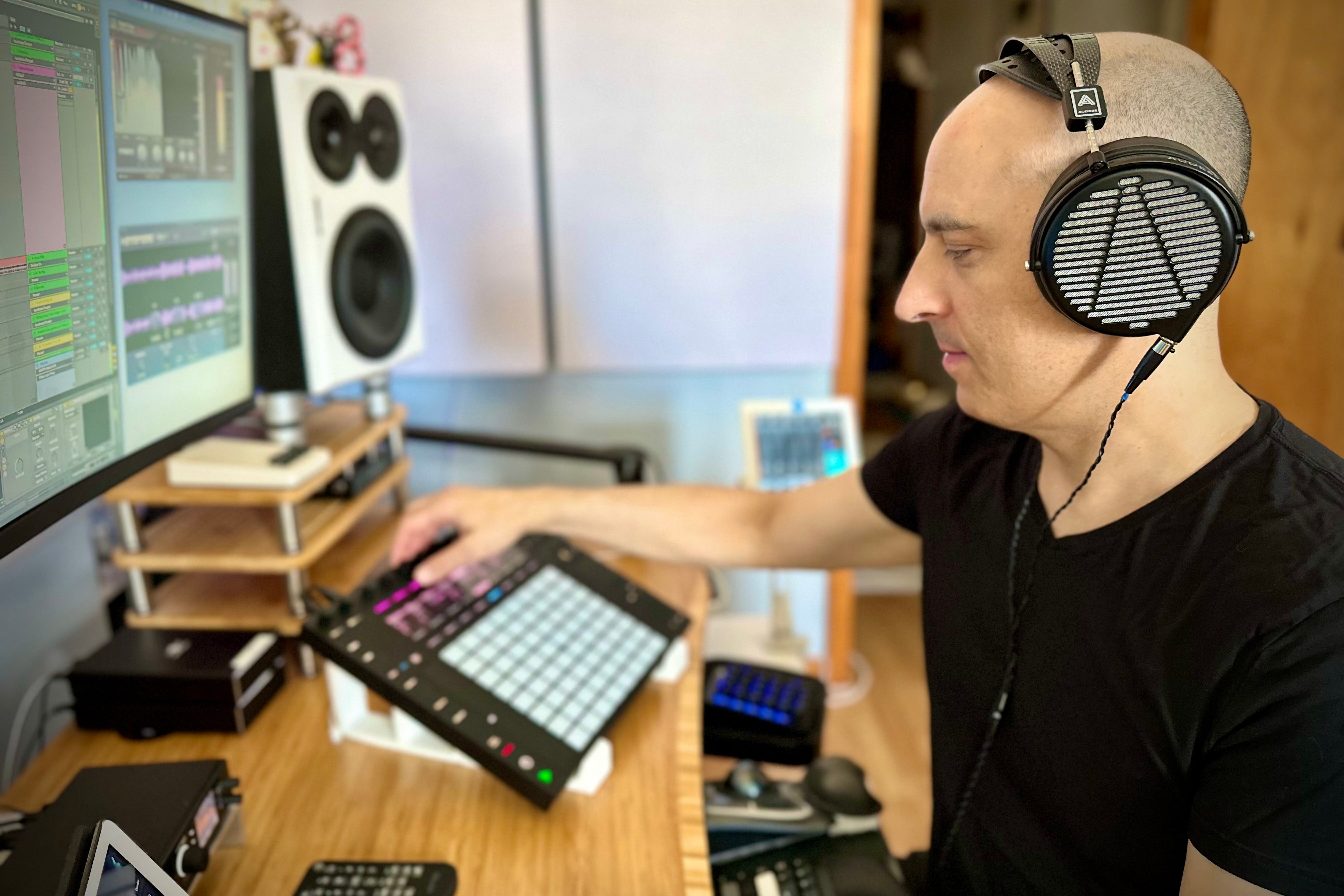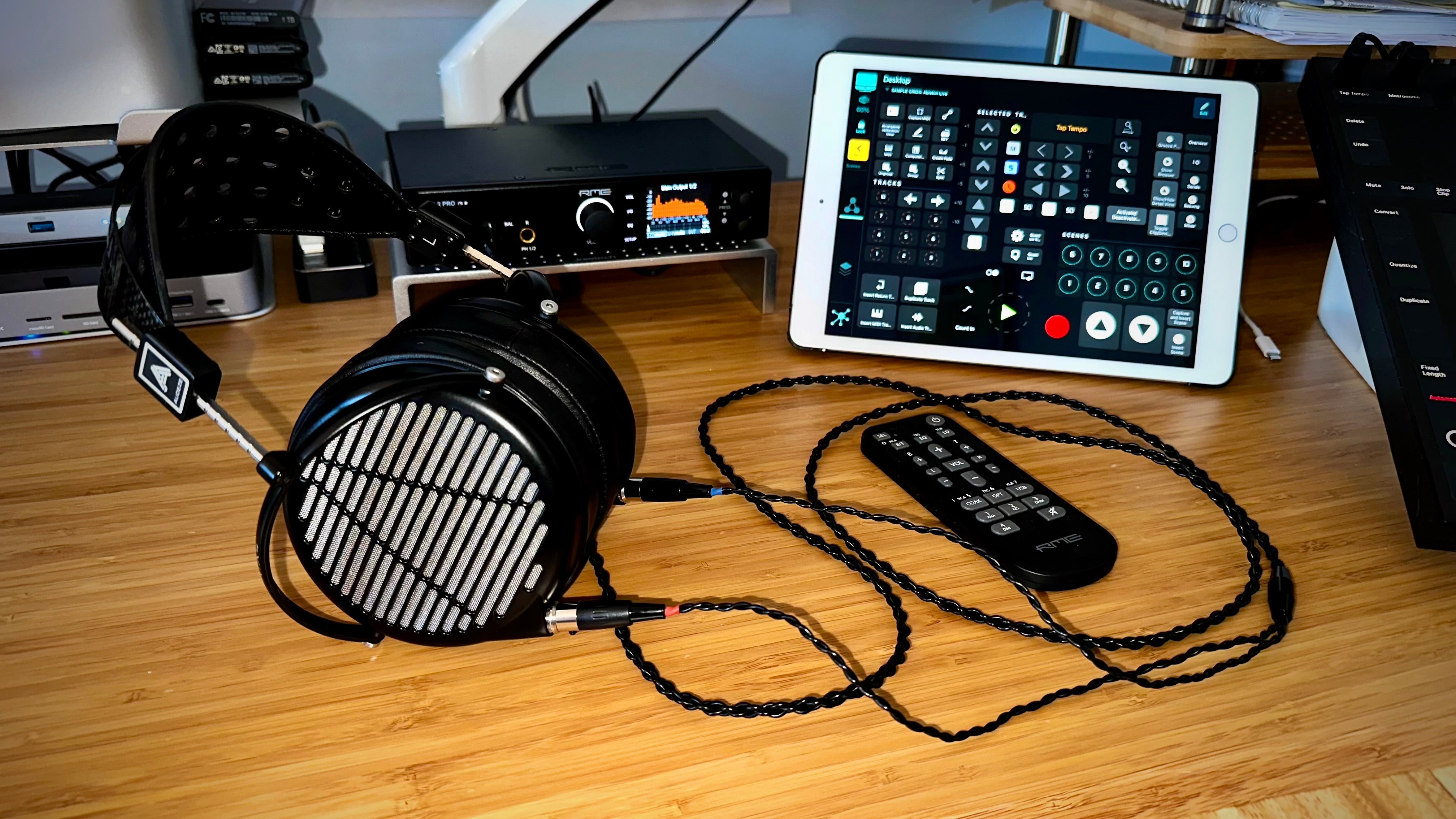
Angie Randisi is a highly acclaimed recording engineer and mixer from Canada, with three Grammy nominations and multiple platinum records to her name. Known for her technical prowess and keen ear, Angie has worked with some of the biggest names in the industry, including Lil Baby, Young Thug, Tory Lanez, 42 Dugg, Glorilla, and PartyNextDoor.

Josh Rogosin defined the tiny desk sound and has recorded and mixed over 800 shows, including Taylor Swift, Sting and Shaggy, Anderson .Paak, Mac Miller, Nile Rogers, and Bono and the Edge. His mixes have been heard on YouTube over a billion times. Now he’s introducing Global Sound and Ghost Light Concerts, traveling the world to discover how location inspires people to make music.

Li-sa-X is a Japanese female Guitarist/Composer who was born in 2005. Her cover video of RACER X's "Scarified," which she posted when she was 8 years old, garnered more than 5 million views and attracted a lot of worldwide attention. After watching this video, the composer of the song Paul Gilbert (MR. BIG) invited her to join his online guitar school as a scholarship student. She made her professional debut at the age of 12. Her playing technique has been described as “the future of rock."

Santaflow is an artist, composer, producer, entrepreneur, teacher and showman, politically incorrect and with millions of followers around the world (mainly in Spanish-speaking countries). After more than 20 years of career, he feels fitter and more eager than ever to continue creating songs and making them sound better every day. A restless lover of the world of sound, he works with several of the leading brands in the sector.
March 23, 2024
Brian Jackson is a mastering engineer, electronic music producer, and Ableton Certified Trainer based in Brooklyn, New York. Over the years Brian has assumed a variety of roles in the industry, often simultaneously: audio engineer, music producer, musician, sound designer, composer, remixer, software beta tester, event promoter, teacher, author, or consultant. In one or another of these capacities, Brian has worked with the likes of Idris Elba, Hank Shocklee, Tribes of Neurot (Neurosis), Chris Baio (Vampire Weekend), Bombay Dub Orchestra, Ableton, Digidesign, Access Music, and supporting members of David Bowie, The B-52s, Cyndi Lauper, and Rufus Wainwright.

I'm particularly proud of my book, but especially the fact that the second edition is included in the Sound On Sound Presents series. As far as music goes, the first album that I produced is something that I'm quite proud of (Memory Systems). I did most everything performance- and production-wise on the album except for the lyrics, vocals, and some lead synth lines that were composed and performed by co-writer Phoenix Perry, and it was mastered at Sonopod by Dave Greenberg. More than 20 years later I obviously hear a lot of things that I could've done better but I think it has aged well. Sharing links to mastering projects is a bit tricky because it's hard for a listener to know what was done before and during the mix and what was the mastering engineer. These first two still give me chills when I listen to them even though they are from the 2010s.
Neighbors – Hooligans
Girlyboi – Whatever
The third link is from a recent project that was really fun to work on and also super challenging. It was my first mastering gig in the bass music genre, and the client was really stoked with the results. Headphones were necessary on this one.
Great Dane – What Meow?
As an independent mastering engineer working out of my home studio I’m solely responsible for all aspects of any given project. When working on music for sync licensing publishers I often collaborate with other composers and producers, otherwise I do everything myself – write, record, arrange, sound design, mix, and master.
I was fortunate enough to have music class in elementary school. In middle school I sang in choir and played alto sax in band. I started learning electric bass right after high school and played in a few local bands while in college. In 1994 I moved from Michigan to San Francisco to pursue music full-time. A few years later I bought a Roland Juno-60 at a thrift store on Mission Street for something like $275, and thus began my love affair with synthesizers. Detroit has such an amazing music history and culture and used to have really amazing radio stations, and you spend a lot of time in your car when you live there. Detroit is of course well-known for Motown but also for being Detroit Rock City. We also had great jazz and classical radio too. WJLB played electro funk, rap, soul, RnB, but most importantly had a show hosted by now legendary DJ The Electrifying Mojo. He played Parliament, Cybotron, Kraftwerk, all sorts of new wave and electronic and funk. I was way too young to understand or appreciate what I was hearing, but it planted some deep seeds that blossomed decades later. MTV was really new and actually played music videos all day, featuring bands like Devo, Bow Wow Wow, Gary Numan, or Oingo Boingo. We also had a local cable access show called Backporch Videos that aired punk videos. Between cable and radio I was exposed to a massive variety of music, though I got really into new wave, punk, hardcore, metal, post-punk, goth, and industrial through the mid 80s to early 90s. Four years as a college radio DJ granted me access to a large collection of music, and I expanded my interests to include prog, jazz, 20th century composers, and world music. By the mid 90s the synth sounds that had subliminally taken over my brain in the early and mid-80s had come to the forefront of interest and I dove deep into electronic music and related musical forms. These days I still have very eclectic taste. For example, I have this playlist that I use for referencing, but also for when teaching production, mixing, and mastering. It includes Yello, Dead Can Dance, Ludwig Goransson, Steve Reich, Meshuggah, The Weeknd, and Rezz to name a few.
Deciding to buy ProTools in 1996 and set up a bedroom studio really set me on a path. A lot of the people around me said I was crazy to try to make music on my computer, but I was sure it was the future. A few years later, watching Dave Greenberg mix my first notable band’s debut album in Pro Tools was a total revelation. Looking over his shoulder for a few weeks, for hours a day, made an immeasurable impact on me. One of my earliest mixing and mastering projects was with one of my favorite bands. Neurosis had just completed the album Times of Grace, engineered by Steve Albini. This was in 1999. They wanted to have a companion album of textures, atmospheres, and sound effects that could be played simultaneously using a second CD player – to create a quad listening experience so to speak. San Francisco’s music scene was pretty small. Regularly running into members in the neighborhood led to them choosing to mix and master Grace with me and one of my bandmates at our Pro Tools studio in the Tenderloin District. They were super happy with the results and I gained a serious amount of confidence from the experience. I’m still in contact with Steve Von Till, and did some technical consulting for his 2022 tour.
All I need is a good Mac, Ableton Live and Push, Avid Pro Tools, Dynaudio monitors, Audeze headphones, a RME interface, and a nice selection of plugins.
It is important to have a broad-ranging understanding of numerous aspects of music and audio, and to be flexible, but make sure to stay focused on a well-thought-out path. Don't spread yourself too thin and try to do too many things at once until you get yourself really established in at least one aspect of the music or audio industry.
For most of my career I mainly used headphones in mixing and mastering for referencing, to check bass, and for critical listening to catch any noise, crackle, distortion etc. Until fairly recently I was of the opinion that you couldn't really mix and master primarily or solely on headphones without too many negative tradeoffs. About 5 years ago I had to move into a room that is quite a bit smaller than where I was for the prior decade, and it has a number of layout and acoustic challenges. I did what I could without spending a total fortune, and actually learned the room well enough to get really good results. But it takes a lot more mental energy to get those good results and listening fatigue sets in much faster than it did in my previous room. Last year I watched an interview on the Plugin Alliance YouTube channel with Glenn Schick where he talks about doing high level mastering work solely with Audeze headphones, going on years at that point. I figured that if he could work with so many A-list artists mastering only on headphones then surely the right headphones could be good enough for me. So for the last few months I've been working primarily on headphones and then using my speakers for referencing, or when I don’t feel like wearing headphones.
I’m probably finally just catching up - though I suspect a lot of other people in our industry are also just catching up - to the fact that mixing and mastering primarily or solely on headphones is a viable option. Of course, you have to learn how to adjust to headphones compared to speakers. And you need really good headphones designed for such purposes. But the right engineer using the right headphones can compete with someone working in a crazy expensive studio.
I trust my low end decisions now more than ever, especially related to sub bass. The MX4 are light and comfortable so I don’t mind wearing them for extended periods of time, and don’t feel the need to switch to speakers just for comfort's sake. I still love my Dynaudio monitors, but am just as happy to work with my Audeze headphones.
I’ve been mastering singles for independent NYC artists in a variety of genres, from singer/songwriter pop to dark downtempo. I’ve also been collaborating with another producer on some cinematic mid-tempo EBM-inspired tracks to pitch to publishers for use in TV, movies, or video game trailers or promos.
